Rust has become a common problem for many homeowners. One area often overlooked by homeowners or property owners is the garage door. Moisture, humidity, and other atmospheric conditions are the main causes of rust on any household appliance or fixture. So, what does it take to make a garage door rust?
Over time, regular use of a garage door can cause wear and tear to the door and garage door opener. Sunlight, particularly if salt is present in the air, such as near oceans, can also cause rusting.
The existence of water, salt, and other rust reagents in your doors pose a real threat to the physical state of the door because they are corrosive substances that can change the chemical structure and reduce the mechanical properties of the metal, eventually causing its malfunction.
There are ways you can prevent your garage door from getting rust, and you can find the information below.
Contents
What Causes Rust on a Garage Door?
Maybe you bought a new garage door and within a short period, rust started to form on it, leaving you to wonder whether you purchased the wrong one. Regardless of lifespan, a garage door’s environment determines when it will start to show signs of rust.
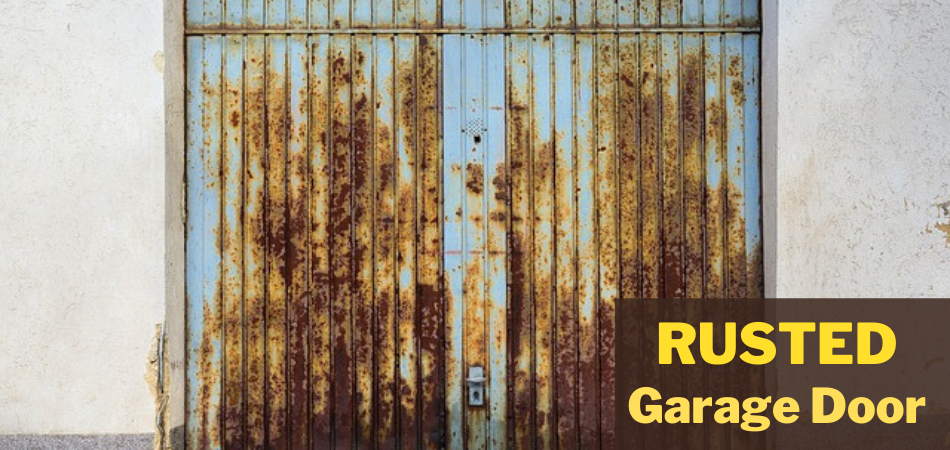
For example, someone that has a garage door installed in a place close to water is more likely to experience rust on his door, than someone who installed his where water or moisture is not readily available.
Having a garage door installed in a snow belt will also make it prone to getting rust spots due to the salt that comes off car tires moving on the street.
Another environment that can also cause a garage door to rust is an industrial area, an area with a damp or humid climate, and a mountain.
Can Rust Buildup on a Garage Door Be Prevented?
A typical garage door is known for building up rust that forms as a result of the door’s exposure to moisture throughout its usage period. This rust can reduce the quality of the door and can also make it harder to operate.
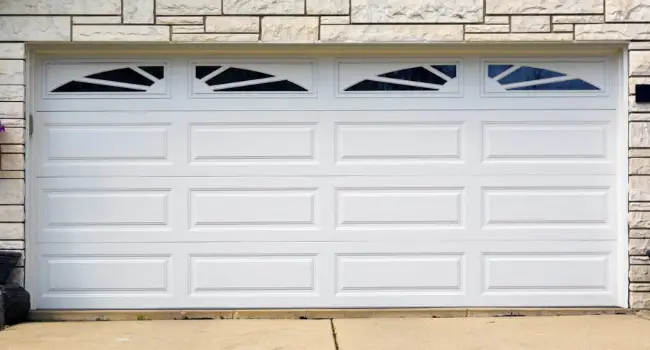
To prevent rust from building up on your garage door, here are a few tips to apply:
Lubricate the garage door parts: Lubricating the garage door parts is one of the major ways through which you can prevent rust from building on it, and the focus should be on the areas that are always in use, like the hinges and springs.
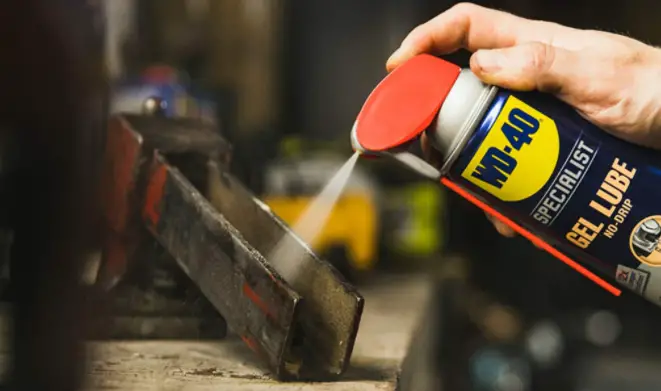
Clean the garage door: Regular cleaning of the garage door can help prevent contaminants that cause rust, like salt and dirt from building up on the door parts. When cleaning, do not use abrasive detergents that are produced with harsh chemicals because they can remove the garage door finishing and make it more prone to rust.

Apply wax on the garage door: Together with lubricants, wax can also serve as a form of protection by preventing rust from developing on the garage door’s finish. Wax prevents the garage door parts from having contact with salt and prevents excess dirt or grime from building up on them.
The quality of the garage door’s appearance can also be improved over time with wax.
Note: Do not use wax on the garage door parts that are made with aluminum.
How to Get Rid of Rust off a Garage Door?
Although most of the recently constructed garage doors are resistant to rust, the older ones still corrode. Over time, any metallic garage door will build up rust, which is why garage door owners need to learn how to get rid of rust from the door.
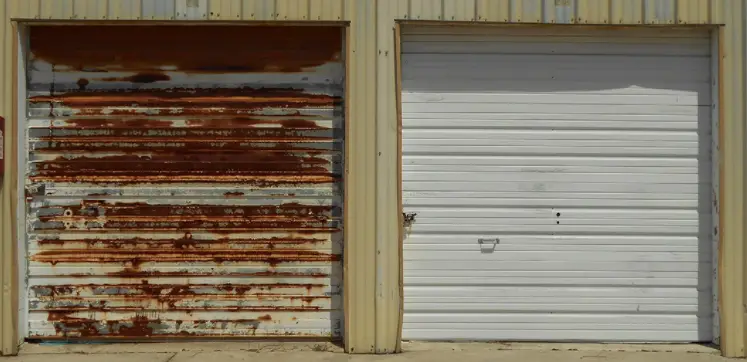
Here are four steps you can use to get rid of rust from a garage door:
Remove rust: Rub a cloth soaked in white vinegar on all rusted areas. The vinegar will react with the rust and make it dissolve. Then use a bristle brush to remove the rust.
Note: Remove all the rust entirely to stop the spread from continuing.
Fill the holes: If the rust made any hole on the door, fill them with a bonding agent or an auto body filler. Once dried, smoothen the area with fine-grit paper, and wipe off the dust with a dry cloth.
Wash the door: Use warm water and trisodium phosphate (TSP) to wash the door thoroughly, or use dish soap if you can’t find TSP.
Note: Follow the recommended TSP to water ratio on the product’s label.
Paint the door: Paint the door with a paint and primer that is rust-resistant and made specifically for garage doors. Also, check if the door’s manufacturer recommended a specific painting product and method.
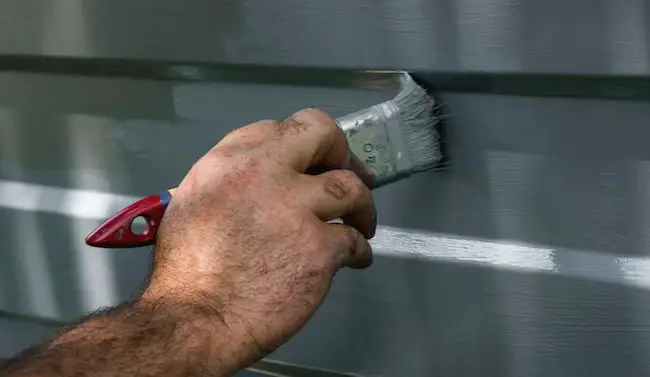
When Should Rust Removal from a Garage Door Be Avoided?
You should avoid removing rust from a garage door if it’s a new door and still have a warranty that covers damages from rust. If the door starts to rust within the warranty period, contact the garage door manufacturer for them to rectify the issue.
If the rust is too much and cannot be fixed, you should consider replacing the entire door, especially if it’s an old one and is close to the end of the stated lifespan. In a case where it’s just the bottom panel (usually the most affected part) that is affected, you can get it replaced, but contact a qualified repair technician for that purpose.
Note: Fixing rust or garage door-related problems yourself can incur an extra expense, and can also void your warranty if the door still has its warranty period active.
Final Words
Exposing a garage door to salt, rain, and moisture will make it rust, and the rusting process will be accelerated if the environment is an industrial area, close to the ocean, or in a snow belt.
Once rust is noticed on a garage door, it should be fixed as quickly as possible to prevent bigger problems like the door becoming hard to open or holes forming on the door, which might bring the need for a complete door replacement.

